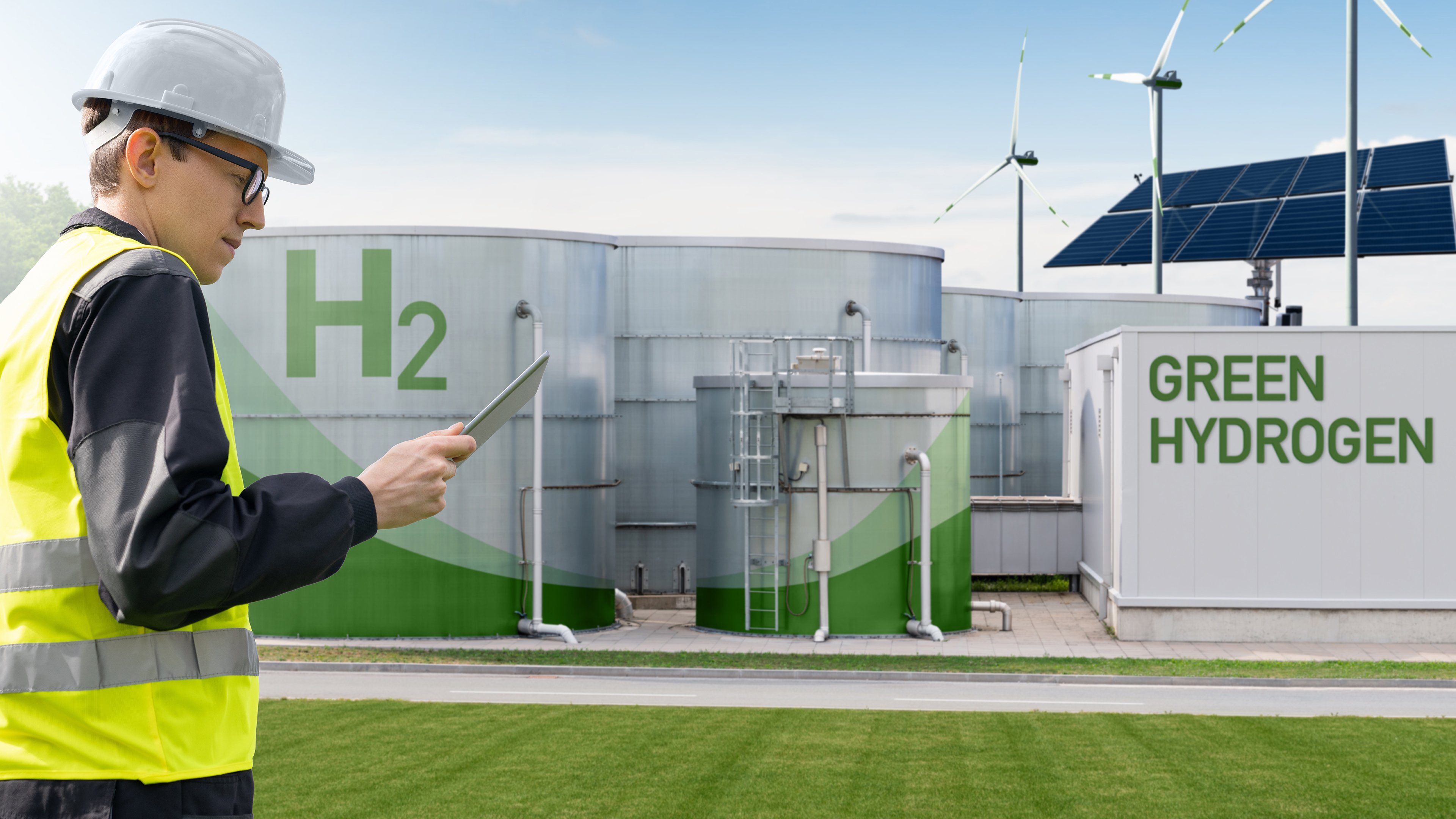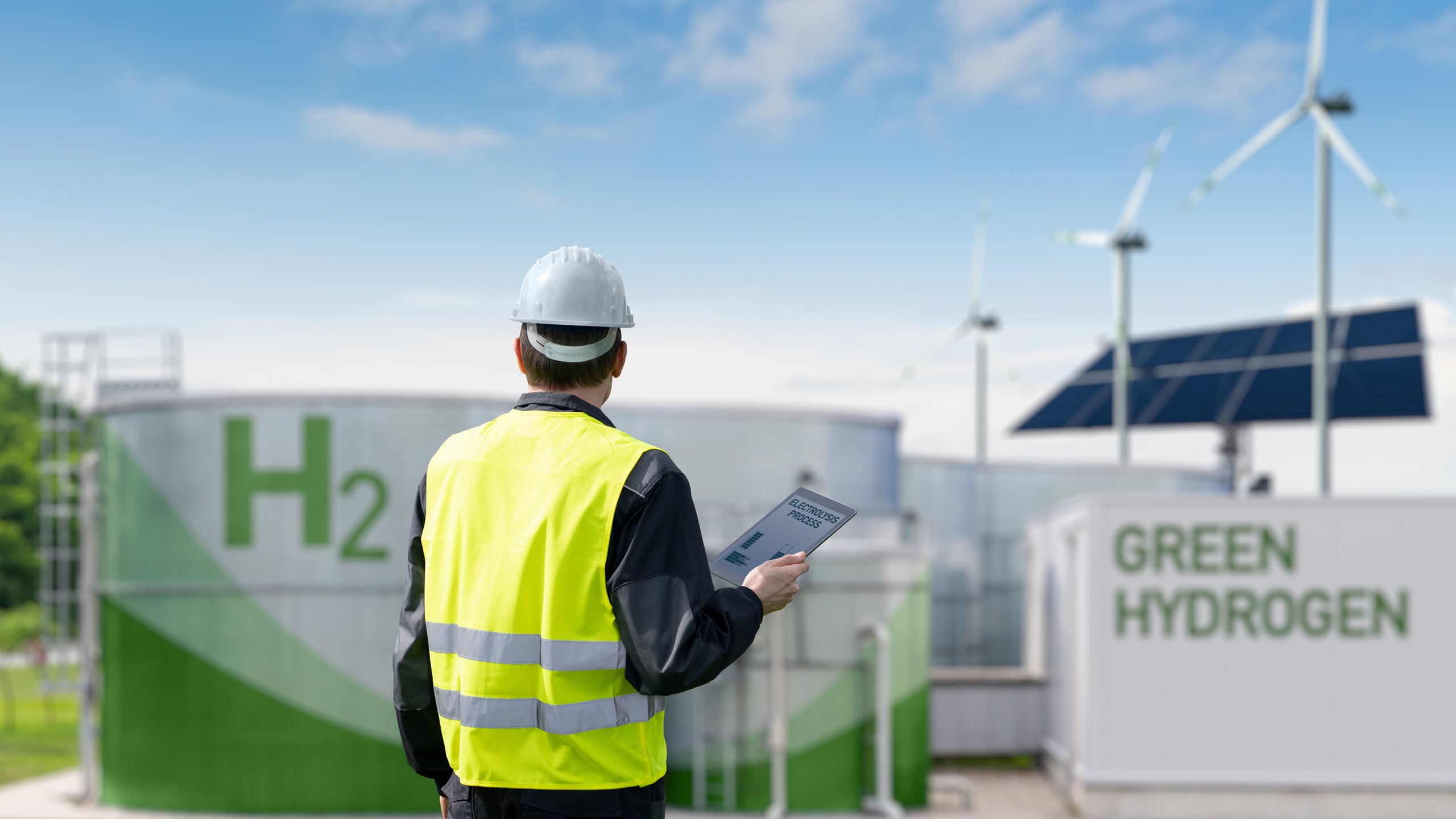The global movement to achieve carbon neutrality and activate net-zero initiatives to reduce carbon emissions has put the green hydrogen industry on a fast track. To drive the development of clean hydrogen production, technical innovation and overall production cost reduction are important factors for success.
In the hydrogen production value chain, hydrogen preparation is the upstream stage, and water electrolysis is the dominant method. Storage and transportation are during the midstream stage, where the large-scale development of hydrogen energy can be challenging and costly due to the unique properties of hydrogen. Lastly, hydrogen application is at the downstream stage, which mainly focuses on fields such as transportation, power generation, and industrial fuel.
Stabilizing the hydrogen production through electrolyzers
In the upstream stage, equipment such as the electrolyzer is essential. Electrolyzers use electricity to split water into hydrogen and oxygen for the production of green hydrogen.
Producing hydrogen through water electrolysis – using electricity from renewable energy sources such as solar or wind – produces the lowest carbon emissions among the options. However, these renewable energy sources are often variable, fluctuant, and intermittent due to climate and temperature changes. Consequently, this impacts the stability of producing hydrogen, so the operational efficiency and electrolysis capacity of electrolyzers are critical for overall hydrogen production performance.
Rockwell Automation is collaborating with Avid Solutions to help companies more efficiently and rapidly produce green hydrogen by enhancing the eletrolyzer’s capacity and performance. While delivering green hydrogen solutions for electrolyzers and hydrogen (H2) liquefaction with turnkey plant automation services, Avid Solutions provides the integrated process control and OT (Operational Technology) solution to get green hydrogen plants up and running quickly.
Prioritizing safety and reliability
Hydrogen producers must consider operational continuity by optimizing upstream processes and achieving end-to-end process integration. Similar to manufacturers in other sectors, improving operational efficiency and reducing overall operational cost are key success factors that can be reached by optimizing energy use at each production stage, reducing the surplus of renewable energy sources and unit emissions to increase overall energy efficiency of the process.
The safety issue cannot be ignored as well. In 2019, hydrogen related safety incidents occurred in Norway, the United States, and South Korea. In May 2019, a hydrogen fuel storage tank exploded in Gangwon Province, South Korea. A month later in June 2019, a hydrogen storage tank leaked and exploded in Santa Clara, California, U.S. and a few days later, a hydrogen refueling station on the outskirts of Oslo, Norway, caught fire and exploded.
Those incidents resulted in some casualties and damage to properties, serving as stark reminders of the criticality of prioritizing safety. Taking electrical safety and process safety into consideration, Rockwell provides customized solutions and consulting services in design, deployment, operation, monitoring and maintenance. The design, operation and maintenance of green electricity, green hydrogen, and green chemical processing are coordinated across the upstream and downstream, helping to ensure that the safety standards are met and implemented throughout the entire hydrogen production.
Additionally, the safety of compressors – the core equipment of hydrogen refueling stations – must be taken seriously. Take the green hydrogen refueling stations (HRSs) in Bielefeld, Germany, as an example. Only ultra-high-pressure hydrogen can be used in fuel cell vehicles, so the compressor should be equipped with reliable and resilient components to deliver durability and safety while additional safety features should be provided for those hydrogen applications. Rockwell's control system solution and its technology were used to build the hydrogen compressor and helped meet stringent safety requirements and improve employee safety while optimizing production and operational efficiency. This allowed for the seamless management of hydrogen refueling stations, ultimately assisting Bielefeld to lead the clean energy transition.
Creating more innovation and success in hydrogen industry
As the green hydrogen market grows, it is becoming increasingly attractive for industry players who have energy production infrastructure to be part of the sector. To get started, producers should seek collaborators with the right expertise to support and enable them to apply relevant technologies more effectively and mitigate risks.
Rockwell Automation has been working with hydrogen producers to reach their goals across maturity levels, whether they are starting from scratch or retrofitting a brownfield facility.
Recently in June 2024, the world's first zero-emission vessel powered by a mix of hydrogen and renewable energy completed its round-the-world voyage after 7 years and 68,000 nautical miles. Rockwell Automation has been collaborating with Energy Observer to provide automation systems and services that help power the vessel, which operates with zero greenhouse gases or fine-particle emissions.
To help ensure 24-hour energy autonomy throughout its global expedition, the Energy Observer uses a combination of intermittent renewable energy: solar panels, wind turbines, lithium-ion batteries and a hydrogen production system. Since its energy management system is based on Rockwell's advanced control technology, the Energy Observer team could monitor, control and optimize energy utilization both onboard and ashore, and make informed decisions about when to switch energy types.
Rockwell Automation has accumulated domain expertise and provided advanced solutions to help upgrade and enhance the overall hydrogen energy industry from multiple dimensions. The solutions include integrated process and power control, safety, real-time data collection, asset management, predictive maintenance and seamless integration of systems to meet the diverse needs and technical requirements of hydrogen production processes, helping industry players to optimize production, achieve operational efficiency, and drive clean energy transition.
To explore more success stories, visit our Hydrogen industry page.
This article is the second part of a two-part Asia Pacific hydrogen industry series. Click here to read the first part of the article on hydrogen trend.


